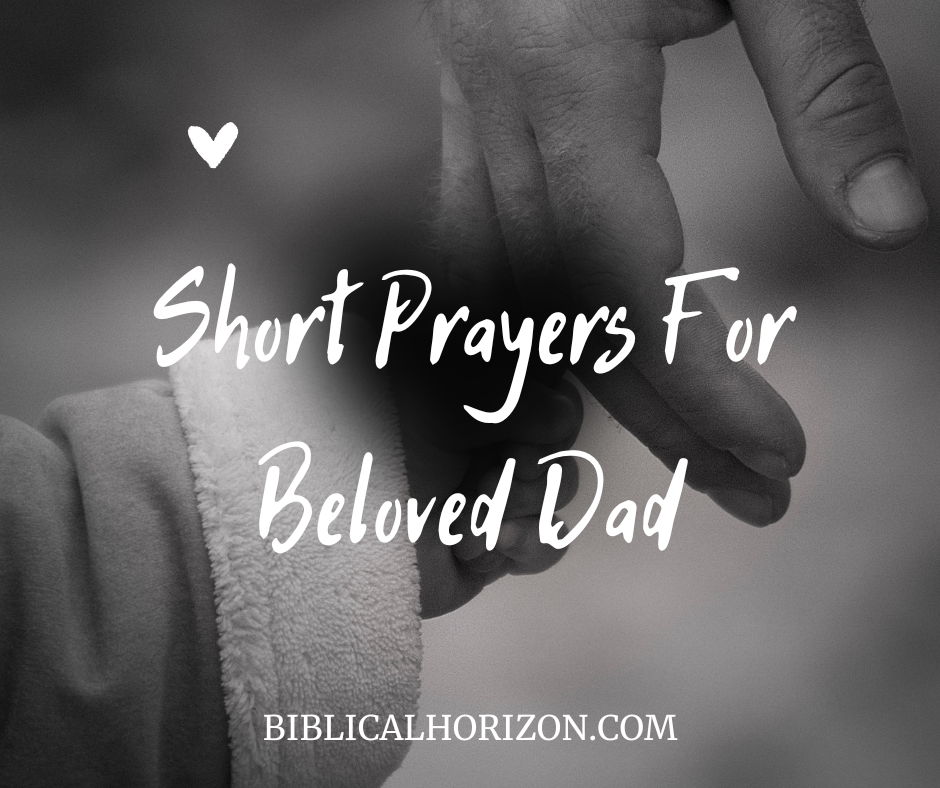In a world filled with uncertainty and doubt, millions of people turn to one particular Bible verse for comfort and direction: Jeremiah 29:11. This powerful scripture has become a beacon of hope for countless believers, offering assurance that God has good plans for their lives.
But what does Jeremiah 29:11 really mean? How should we understand this promise in its original context? And how can we apply its timeless truth to our modern lives without falling into common misinterpretations?
This comprehensive guide will explore every aspect of Jeremiah 29 verse 11, from its historical background to its practical application. Whether you’re familiar with this verse or encountering it for the first time, you’ll discover the profound depth of God’s faithfulness and His sovereign plan for His people.
What is Jeremiah 29:11?
Jeremiah 29:11 stands as one of the most quoted and beloved verses in the entire Bible. The verse reads:
“For I know the plans I have for you,” declares the LORD, “plans to prosper you and not to harm you, to give you hope and a future.” (NIV)
This scripture resonates deeply with people because it addresses fundamental human concerns: our future, our purpose, and whether we can trust in God during difficult times.
The Universal Appeal of This Promise
People across cultures and denominations find comfort in Jeremiah 29:11 because it speaks to several universal human needs:
- Security about the future
- Assurance of God’s good intentions
- Hope during challenging circumstances
- Trust in divine sovereignty
Common Misconceptions About Jeremiah 29:11
Many people quote Jeremiah 29 11 without understanding its original context. Some common misunderstandings include:
- Treating it as a personal guarantee of worldly success
- Ignoring the historical circumstances of the exiles
- Using it to justify the prosperity gospel
- Applying it without considering the role of suffering in God’s plan
Historical and Literary Context
To truly understand what Jeremiah 29:11 means, we must examine its historical setting. The prophet Jeremiah wrote this letter to the Jewish exiles who had been taken to Babylon by King Nebuchadnezzar.
These exiles were living in captivity, separated from their beloved Jerusalem and wondering if God had abandoned them. In this context, Jeremiah’s words carried profound significance – they weren’t just nice platitudes, but a direct promise from LORD Almighty to His suffering people.
The letter was written around 597 BC, during one of the darkest periods in Jewish history. The people needed spiritual guidance and divine inspiration to survive their displacement and maintain their faith.
Jeremiah 29:11 KJV and Translation Analysis
The King James Version of Jeremiah 29:11 holds special significance for many believers due to its historical importance and beautiful language.
King James Version Text
The KJV Jeremiah 29 11 reads:
“For I know the thoughts that I think toward you, saith the LORD, thoughts of peace, and not of evil, to give you an expected end.”
Key Differences in Translation
Different Bible translations capture various nuances of the original Hebrew text:
| Translation | Key Phrase | Emphasis |
|---|---|---|
| KJV | “thoughts of peace” | God’s peaceful intentions |
| NIV | “plans to prosper you” | God’s desire for well-being |
| ESV | “plans for welfare” | Comprehensive flourishing |
| NLT | “plans for good” | Simple, clear intention |
| NKJV | “thoughts of peace” | Maintains traditional language |
Hebrew Word Analysis
The original Hebrew provides deeper insight into Jeremiah 29:11 meaning:
- Machashavot (thoughts/plans) – deliberate, purposeful thinking
- Shalom (peace/prosperity) – complete well-being and wholeness
- Tikvah (hope) – confident expectation
- Acharith (future/expected end) – a meaningful conclusion
What Does Jeremiah 29:11 Say? – Verse Breakdown
Understanding what Jeremiah 29 11 says requires careful examination of each component of this powerful promise.
“For I Know the Plans I Have for You”
This opening phrase establishes several crucial truths:
God’s Omniscience: The LORD Almighty possesses complete knowledge of the future. Unlike human planning, which is often uncertain and subject to change, God’s plans are based on perfect knowledge.
Personal Attention: The phrase “for you” emphasizes that God’s care is not generic but specifically directed toward His people. Each person matters individually to God.
Divine Sovereignty: God’s plans supersede human understanding and circumstances. Even when the exiles couldn’t see the way forward, God had already mapped out their restoration.
“Plans to Prosper You and Not to Harm You”
The Hebrew word shalom encompasses much more than material prosperity:
- Physical well-being
- Spiritual wholeness
- Community harmony
- **Emotional peace
- Relational restoration
This promise doesn’t guarantee a life without challenges, but it assures God’s people that His ultimate intention is their flourishing, not their destruction.
“To Give You Hope and a Future”
The conclusion of Jeremiah 29:11 provides two essential gifts:
Hope (Tikvah): This isn’t wishful thinking but confident expectation based on God’s character and promises. Even in captivity, the exiles could maintain hope because God had spoken.
Future (Acharith): This term suggests not just continued existence but a meaningful conclusion to their story. God promised that their current suffering wasn’t the end of their narrative.
Jeremiah 29:11 Meaning – Deep Theological Analysis
The meaning of Jeremiah 29:11 operates on multiple levels, from its immediate historical context to its broader theological implications.
Immediate Historical Meaning
When Jeremiah wrote this letter to the exiles in Babylon, he was addressing a specific historical situation:
The Babylonian Exile: In 597 BC, Nebuchadnezzar deported thousands of Jews from Jerusalem to Babylon. These exiles faced:
- Cultural displacement
- Religious challenges
- Economic uncertainty
- Political powerlessness
The 70-Year Timeline: Jeremiah prophesied that the exile would last exactly 70 years (Jeremiah 29:10). This specific timeframe gave the exiles a concrete hope for restoration.
Literal Fulfillment: History records that the exiles did return to Jerusalem under Cyrus the Great in 538 BC, exactly 70 years after the first deportation.
Broader Theological Implications
Jeremiah 29:11 reveals several important truths about God’s character:
Covenant Faithfulness: Even when His people experienced judgment for their rebellion, God remained committed to His covenant promises.
Redemptive Purpose in Suffering: The exile wasn’t meaningless punishment but served God’s greater purposes:
- Purifying His people
- Preparing them for restoration
- Demonstrating His sovereignty over nations
Divine Sovereignty: God’s plans encompass both judgment and restoration, showing His complete control over history.
Application Principles for Modern Believers
While Jeremiah 29:11 was written to specific people in a specific situation, several principles apply to believers today:
God’s Character Remains Consistent: The same God who cared for the exiles cares for believers today with the same faithfulness and love.
Suffering Doesn’t Negate God’s Good Plans: Just as the exiles experienced God’s goodness through their trials, modern believers can trust God’s purposes in their difficulties.
Hope Anchored in God’s Promises: True hope comes not from circumstances but from God’s unchanging character and promises.
Common Misinterpretations to Avoid
Prosperity Gospel Distortion: Jeremiah 29:11 doesn’t guarantee material wealth or worldly success. God’s “prosperity” often differs from human definitions.
Individualistic Application: The original promise was given to a community of exiles, not isolated individuals. While God cares personally for each believer, His plans often involve community and corporate purposes.
Ignoring the Role of Suffering: Some people use Jeremiah 29:11 to avoid acknowledging that God’s good plans sometimes include difficult experiences for our growth and His glory.
Jeremiah 29:11 Scripture in Full Context
To fully understand Jeremiah 29 verse 11, we must examine it within the broader context of Jeremiah chapter 29 and the entire book.
The Broader Passage (Jeremiah 29:1-14)
Jeremiah’s letter to the exiles contains several important elements:
Recipients: The letter was addressed to:
- Surviving elders among the exiles
- Priests and prophets
- All people Nebuchadnezzar had carried into exile
Practical Instructions (verses 5-7):
- Build houses and settle down
- Plant gardens and eat their produce
- Marry and have children
- Seek the peace and prosperity of Babylon
Warning Against False Prophets (verses 8-9):
- Don’t listen to false prophets and diviners
- These people speak lies in God’s name
- Their dreams and prophecies are deceptive
The 70-Year Promise (verses 10-14):
- After 70 years, God will fulfill His promise
- He will bring them back to Jerusalem
- When they seek Him with all their heart, they will find Him
Surrounding Chapters and Themes
Jeremiah 29 fits into the larger narrative of Jeremiah’s prophetic ministry:
Judgment Prophecies (Chapters 1-25): Jeremiah warned of coming judgment due to Judah’s rebellion and idolatry.
Hope and Restoration (Chapters 30-33): These chapters, including the famous New Covenant passage (31:31-34), promise ultimate restoration.
Historical Fulfillment (Chapters 34-52): The final chapters record the actual fall of Jerusalem and the beginning of exile.
Old Testament Context
Jeremiah 29:11 connects to broader Old Testament themes:
Covenant Promises: God’s faithfulness to Abraham, Isaac, and Jacob Davidic Covenant: The promise of an eternal kingdom Prophetic Literature: Themes of judgment and restoration throughout the prophets
Jeremiah 29:11 Commentary – Scholarly Perspectives
Biblical scholars have provided extensive commentary on Jeremiah 29:11, offering various insights into its meaning and application.
Historical-Critical Analysis
Modern scholarship has confirmed many aspects of Jeremiah’s historical context:
Archaeological Evidence: Discoveries in Babylon have confirmed the presence of Jewish exiles and their conditions.
Dating and Authorship: Most scholars accept that Jeremiah authored this letter around 597-596 BC.
Literary Structure: The letter follows ancient Near Eastern conventions for official correspondence.
Theological Commentary Insights
Different theological traditions offer varying perspectives on Jeremiah 29:11:
Reformed Perspective: Emphasizes God’s sovereignty and the certainty of His plans. John Calvin wrote extensively about God’s immutable purposes and how they provide comfort to believers.
Arminian Views: While affirming God’s good plans, this perspective emphasizes human responsibility and the conditional nature of some promises.
Liberation Theology: Focuses on God’s concern for the oppressed and marginalized, seeing the exiles as representatives of all who suffer injustice.
Practical Application from Commentators
Leading biblical commentators offer practical guidance for applying Jeremiah 29:11:
Matthew Henry emphasized that God’s thoughts toward His people are always thoughts of love, even when they don’t understand His ways.
Charles Spurgeon preached that this verse should encourage believers to trust God’s wisdom even in dark times.
John MacArthur warns against misapplying the verse while affirming its comfort for believers who trust in God’s sovereignty.
God Has a Plan for Your Life Bible Verse – Related Scriptures
Jeremiah 29:11 is part of a larger biblical testimony about God’s purposes and plans for His people.
Old Testament Passages About God’s Plans
Several other Old Testament passages complement Jeremiah 29:11:
Psalm 139:16: “Your eyes saw my unformed body; all the days ordained for me were written in your book before one of them came to be.”
This verse emphasizes God’s intimate knowledge of each person’s life from before birth.
Proverbs 19:21: “Many are the plans in a person’s heart, but it is the LORD’s purpose that prevails.”
This scripture shows the relationship between human planning and divine sovereignty.
Isaiah 55:8-9: “‘For my thoughts are not your thoughts, neither are your ways my ways,’ declares the LORD. ‘As the heavens are higher than the earth, so are my ways higher than your ways and my thoughts than your thoughts.'”
This passage reminds us that God’s plans transcend human understanding.
New Testament Affirmations
The New Testament builds on Old Testament themes about God’s purposes:
Romans 8:28: “And we know that in all things God works for the good of those who love him, who have been called according to his purpose.”
This verse assures believers that God’s good plans encompass all circumstances.
Ephesians 2:10: “For we are God’s handiwork, created in Christ Jesus to do good works, which God prepared in advance for us to do.”
This scripture reveals that God’s plans for believers include specific good works.
Ephesians 1:11: “In him we were also chosen, having been predestined according to the plan of him who works out everything in conformity with the purpose of his will.”
This passage emphasizes the comprehensive nature of God’s sovereign plan.
How These Verses Complement Jeremiah 29:11
These related scriptures work together to paint a complete picture:
Consistency of God’s Character: From the Old Testament to the New, God consistently demonstrates His love and faithfulness to His people.
Progressive Revelation: While Jeremiah 29:11 revealed God’s plans for the exiles, the New Testament shows how those plans ultimately point to Christ and the gospel.
Universal Application: What God demonstrated to the Jewish exiles, He continues to demonstrate to all who trust in God through faith in Christ.
God Promises in Bible – The Nature of Divine Promises
Understanding Jeremiah 29:11 requires grasping how biblical promises work.
Understanding Biblical Promises
Not all biblical promises are identical. Scholars typically categorize them into several types:
Unconditional Promises: These depend solely on God’s character and commitment
- God’s covenant with Abraham (Genesis 12:1-3)
- The New Covenant in Christ (Jeremiah 31:31-34)
Conditional Promises: These require human response or obedience
- Blessings for obedience (Deuteronomy 28:1-14)
- Restoration after repentance (2 Chronicles 7:14)
Corporate vs. Individual: Some promises apply to groups, others to individuals
- Jeremiah 29:11 was originally given to the corporate community of exiles
- Personal promises like Psalm 23 apply to individual believers
God’s Faithfulness to His Promises
Throughout Scripture, God demonstrates perfect faithfulness to His promises:
Historical Fulfillment: The return from Babylonian exile exactly as Jeremiah prophesied
Christological Fulfillment: Many Old Testament promises find their ultimate fulfillment in Jesus Christ
Eschatological Fulfillment: Some promises await complete fulfillment in the future kingdom of God
How Jeremiah 29:11 Fits Into God’s Promise Pattern
Jeremiah 29:11 exemplifies several characteristics of divine promises:
Rooted in God’s Character: The promise reflects God’s love, faithfulness, and sovereignty
Contextually Specific: Originally given to exiles in a specific historical situation
Universally Applicable: The principles underlying the promise apply to all believers
Eschatologically Oriented: Points toward ultimate restoration and hope
Practical Application for Modern Life
While Jeremiah 29:11 was written to ancient exiles, its principles offer profound guidance for contemporary believers.
Living with Confident Hope
Jeremiah 29:11 teaches believers how to maintain hope regardless of circumstances:
Trust God’s Timing: Just as the exiles had to wait 70 years, believers today must learn to trust in God’s perfect timing.
Find Peace in Uncertainty: When we can’t see God’s plan clearly, we can rest in His character and promises.
Maintain Eternal Perspective: Temporary difficulties don’t negate God’s eternal purposes for our lives.
Avoiding Common Pitfalls
Modern application of Jeremiah 29:11 requires wisdom and discernment:
Don’t Use It to Justify Poor Choices: God’s good plans don’t excuse our responsibility to make wise decisions.
Understand Suffering’s Role: God’s good plans often include difficult experiences that produce growth and character.
Avoid Prosperity Gospel Distortion: God’s “prosperity” may look different from worldly success.
Pastoral Care and Encouragement
Jeremiah 29:11 provides comfort in various life situations:
Times of Loss: When people face grief, this verse reminds them that God’s plan includes restoration and hope.
Career Uncertainty: During job transitions or professional challenges, believers can trust God’s provision and guidance.
Health Struggles: Even in illness, God’s good plans continue to unfold, often in unexpected ways.
Relationship Difficulties: Whether facing displacement from community or family challenges, God’s faithfulness provides stability.
Conclusion
Jeremiah 29:11 stands as one of the most powerful and comforting promises in all of Scripture. When properly understood in its historical context and theological framework, this verse provides genuine hope and assurance for believers facing uncertainty.
The exiles in Babylon needed to hear that their displacement wasn’t the end of their story. Similarly, modern believers need the assurance that God’s good plans continue to unfold even when circumstances seem hopeless.
As we apply Jeremiah 29:11 to our lives, we must remember:
- God’s plans are always rooted in His love and faithfulness
- Our current circumstances don’t define our future
- True hope comes from trusting in God’s character, not our circumstances
- God’s definition of prosperity may differ from our expectations
Whether you’re facing a season of exile or enjoying a time of blessing, Jeremiah 29:11 reminds you that LORD Almighty has good plans for your life – plans that ultimately lead to hope and a meaningful future.
Trust in God, hold fast to His promises, and remember that the same faithfulness He showed to the ancient exiles continues to guide and sustain His people today.
Additional Resources
For deeper study of Jeremiah 29:11 and related topics, consider these resources:
- Commentaries: Matthew Henry, John Calvin, Charles Spurgeon
- Study Tools: Strong’s Concordance, Hebrew lexicons, historical backgrounds
- Related Studies: Covenant theology, biblical prophecy, Old Testament history

Catherine Frank, founder of BiblicalHorizon.com, shares daily prayers and Bible verses to nurture spiritual growth. With a lifelong passion for scripture and prayer traditions, she creates accessible spiritual content that resonates with both seasoned believers and newcomers seeking divine connection.



